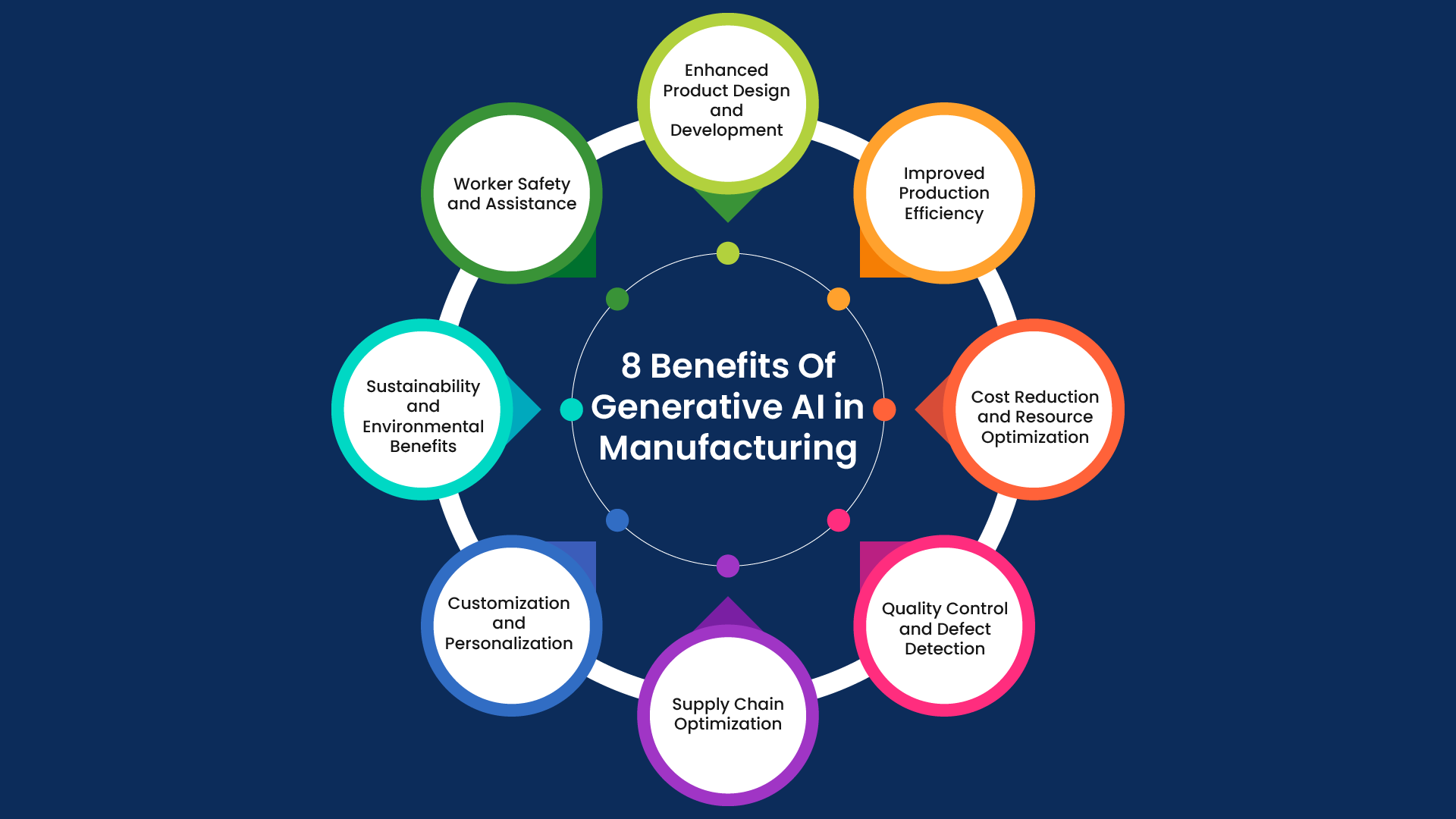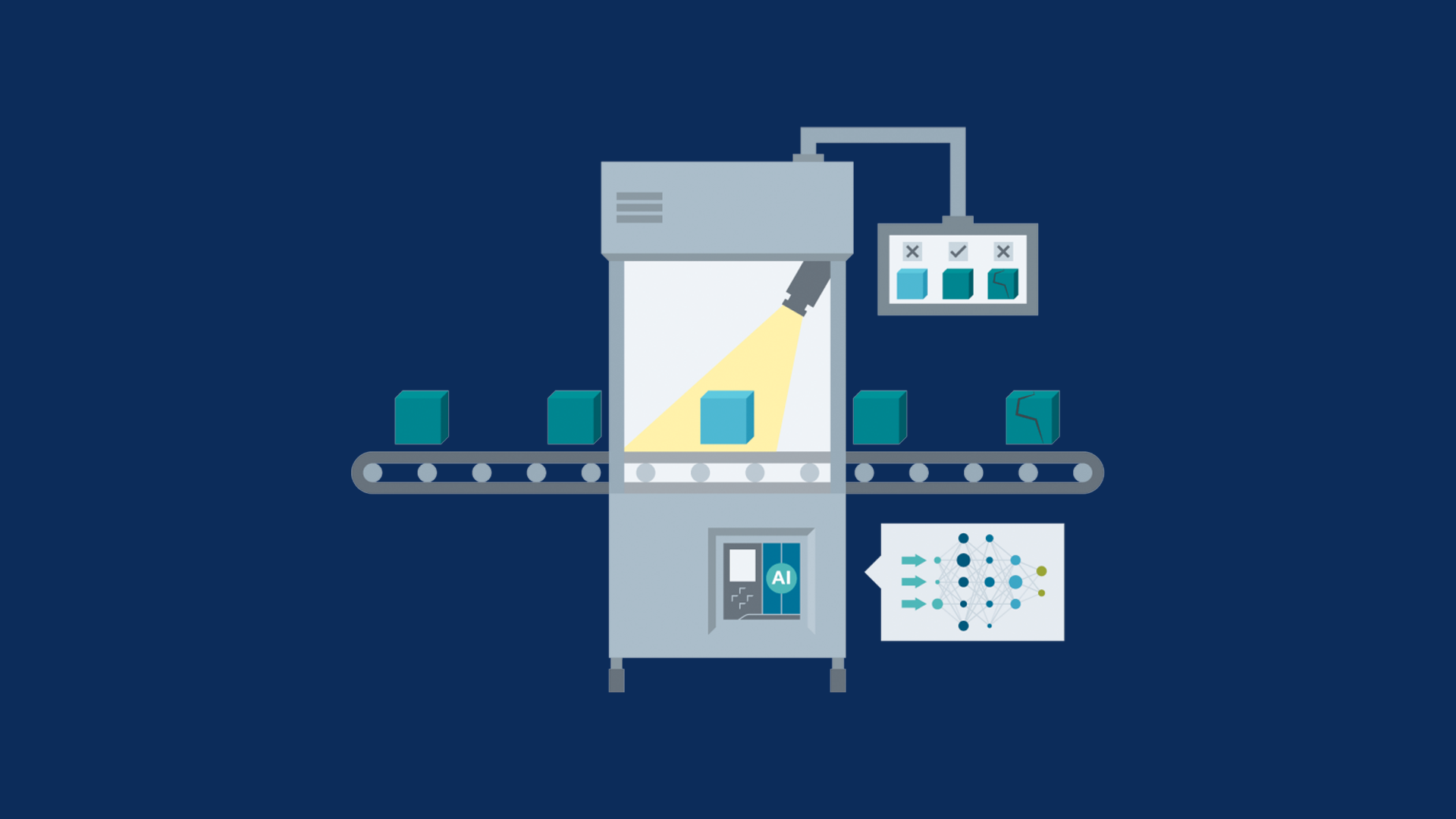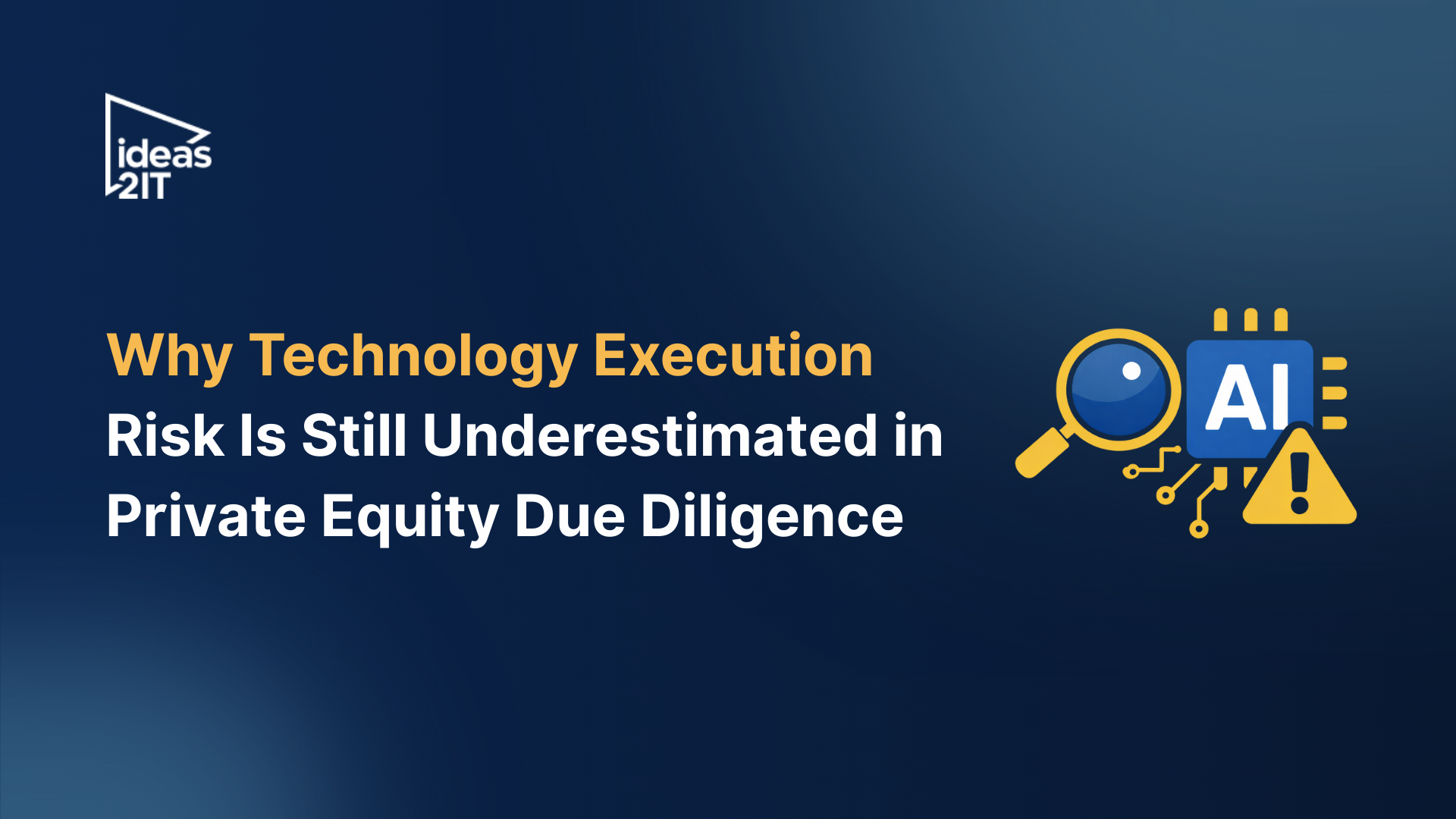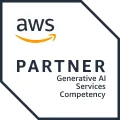Generative AI In Manufacturing: Use Cases And Benefits
TL'DR
In the world of manufacturing, things are constantly changing. We're always looking for ways to make better products faster and at lower costs. One of the big game-changers in this process is Generative AI.
Gen AI is like having a super-smart assistant that can help change the way we make things, from designing products to keeping our machines running smoothly. It is a strategic imperative that can elevate manufacturers to new heights of competitiveness and efficiency.
In the 2024 McKinsey Global Survey on AI, a significant revelation emerged: 65% of respondents confirmed their organizations are now regularly leveraging generative AI (gen AI), marking a substantial increase from the previous survey conducted just ten months prior. Moreover, an overwhelming three-quarters of respondents anticipate that generative AI will catalyze significant or disruptive transformations within their industries in the foreseeable future.
Generative AI Use Cases In Manufacturing
From accelerating time to market and harnessing digital twin technology to fostering innovation, enabling predictive maintenance, and enhancing decision-making, generative AI offers manufacturers unparalleled opportunities to drive efficiency and innovation. Gen AI adorns a bunch of different crowns for the manufacturing sector with its diverse range of applications and transformative capabilities.
Product Development Process Automation
Generative AI streamlines product development by automating and optimizing processes like design, prototyping, and testing. This automation enables manufacturers to iterate faster, respond swiftly to market demands, and deliver innovative products more quickly than ever before.
Digital Twin Technology (Simulations)
Generative AI powers the creation of digital twins, virtual replicas of physical assets or processes. By leveraging real-time data from sensors and other sources, manufacturers can simulate and analyze operations in a virtual environment. This capability allows for predictive analysis, optimization of production lines, and proactive maintenance planning without disrupting actual production processes.
Datadriven Innovation
Machine learning algorithms in generative AI analyze extensive datasets to uncover insights into market trends, customer preferences, and operational efficiencies. This data-driven approach empowers manufacturers to innovate in product design, optimize manufacturing processes, and explore new business opportunities, maintaining a competitive edge in the market.
Predictive Maintenance
Generative AI analyzes sensor data to detect patterns indicating potential equipment failures or maintenance needs. By predicting issues before they occur, manufacturers can schedule maintenance proactively, minimize downtime, and optimize operational efficiency and cost-effectiveness.
Streamlining Decision-Making
By processing historical data from various sources, including inventory management and market trends, generative AI provides actionable insights for strategic decision-making. Manufacturers can optimize production planning, identify cost-saving opportunities, and improve overall business performance based on data-driven recommendations.
Quality Control Automation
Generative AI is instrumental in maintaining product quality and overseeing production within the manufacturing industry. Integrating AI and ML can swiftly pinpoint even the most minute equipment defects. These systems can detect potential errors and alert stakeholders in real time, mitigating downtime issues before they escalate.
Supplier Evaluation and Supply Chain Logistics
Suppliers being the critical backbone of any manufacturing organization,making informed decisions is critical for business success. With Generative AI, streamlining supplier evaluation and selection based on data evaluation is just a click away.
Enhancing supply chain operations by optimizing distribution and logistics processes is an important spoke in the wheel. Leveraging the power of ML, analyzing historical data to forecast demand and enabling manufacturers to coordinate distribution channels is a breeze.
Production Planning and Scheduling
Challenging tasks like inaccurate forecasting, suboptimal resource allocation and inefficient inventory management can lead to missed deadlines and high carrying cost. With Gen AI comes the ease of agility and accuracy thereby making resource allocation and inventory management hassle free.
Customer Support Navigation
By leveraging the capability of Gen Ai , emulateing human-like conversation can improve client experiences and serve as a virtual representative in providing product information around the clock and eliminating the need for a human customer service agent. This enables freeing up of human resources for more complex tasks and enhancing operational efficiency and productivity.
What is Generative AI?
Generative AI, an innovative subset of artificial intelligence, excels in creating unique content across text, images, audio, and video. Platforms like ChatGPT, DALL-E, and Stable Diffusion enhance marketing, customer service, and sales strategies through advanced machine learning models.
Foundational AI models enable generative AI to perform tasks like summarization, question-answering, and classification with minimal training data. These versatile models adapt quickly to specific applications, improving efficiency and effectiveness.
Generative AI is based on machine learning principles, where models analyze human-created content to identify patterns and generate new content. This process typically involves supervised learning, allowing the AI to produce content that aligns with provided examples.
A key advantage of generative AI is its democratizing effect on AI development, enabling more people to create AI solutions. This broadens access beyond data scientists, fostering innovation across various sectors.
The Global Generative AI In Manufacturing Market size is expected to be worth around USD 6,397.4 Million by 2033, from USD 223.4 Million in 2023, growing at a CAGR of 41.10% during the forecast period from 2024 to 2033.
The surge in demand for new advanced technologies and implementation of AI models in manufacturing industries are some of the main key driving factors for the generative artificial intelligence in manufacturing market.
As we explore the use of Generative AI in manufacturing, it's crucial to understand the tangible benefits it brings to the table.
This blog provides a view into 8 transformative advantages that Generative AI can offer to the manufacturing sector, spanning from streamlining design processes to enabling predictive maintenance, with use cases that demonstrate each advantage's potential to reshape the future of manufacturing as we know it.
So, without any further ado, let us get started.
8 Benefits Of Generative AI in Manufacturing
Here are the 8 benefits of Generative AI in manufacturing:
1. Enhanced Product Design and Development
2. Improved Production Efficiency
3. Cost Reduction and Resource Optimization
4. Quality Control and Defect Detection
5. Supply Chain Optimization
6. Customization and Personalization
7. Sustainability and Environmental Benefits
8. Worker Safety and Assistance

Let's explore the main benefits of generative AI in the coming years, one by one:
1. Enhanced Product Design and Development
Generative AI offers an unparalleled capacity to reimagine how products are conceived, designed, and optimized, ultimately leading to superior, more innovative outcomes.
At its core, Gen AI harnesses the computational prowess of deep learning algorithms and extensive datasets to generate an array of design options. Unlike traditional methods constrained by templates and human intuition, Generative AI operates in an expansive realm of possibilities.
One of its most remarkable features is its ability to explore uncharted design territories. While human designers possess creativity, they are limited by their experiences and knowledge. In contrast, Generative AI can traverse design spaces that might have remained hidden or overlooked, unearthing novel solutions and pushing the boundaries of what's feasible.
These capabilities have translated into real-world success stories across diverse industries. For instance, automakers leverage Generative AI to optimize vehicle designs, leading to lighter and more cost-effective components.
In fashion, AI assists in textile design, creating intricate patterns and textures, while electronics manufacturers use it to refine product enclosures, resulting in sleek and efficient designs. In each case, Generative AI not only accelerates design processes but also introduces innovations that might have eluded human designers.
It's about redefining what's possible and ensuring that products stand out in terms of both form and function.
2. Improved Production Efficiency
Efficiency is the heartbeat of modern manufacturing, and Generative AI has emerged as the conductor of this symphony. It ensures that the manufacturing process runs smoothly by using AI-powered algorithms to make every part of production work better.
With a relentless focus on minimizing waste and maximizing output, Generative AI has become the linchpin for companies striving to remain competitive in today's dynamic market.
Its AI algorithms ingest data from diverse sources, such as sensors, machines, and historical records. This data is then meticulously analyzed to identify patterns and bottlenecks. The result is a manufacturing process fine-tuned to perfection.
But it doesn't stop there. Generative AI is not just a passive observer; it's a proactive guardian of machinery and equipment. Through predictive maintenance and real-time monitoring, AI algorithms detect signs of wear and tear in machinery before they escalate into costly breakdowns.
This proactivity empowers manufacturers to schedule maintenance at precisely the right moment, preventing unplanned downtime that can dent both productivity and profitability.
3. Cost Reduction and Resource Optimization
One of the most significant benefits of generative AI is its ability to reduce operational costs and optimize resource use. The technology minimizes material wastage and curtails energy consumption, making it a key driver of sustainable and cost-effective production.
Generative AI's ability to minimize material wastage is a result of its detailed scrutiny of data and patterns.
For instance, in 3D printing, AI algorithms optimize the placement of each layer, reducing material usage while maintaining structural integrity. This translates into significant material cost savings.
Additionally, Generative AI contributes to reduced energy consumption by fine-tuning manufacturing processes and schedules. AI algorithms ensure machines and equipment operate at their most energy-efficient levels, resulting in lower overall energy costs.
While specific data points are not available here, real-world examples abound. Many companies across various industries have successfully employed Generative AI to reduce material waste and energy consumption, leading to cost savings and more sustainable production.
Generative AI's role as a cost reduction and resource optimization tool is a key factor in the manufacturing industry's pursuit of efficiency and environmental responsibility.
As manufacturers increasingly embrace this technology, they move closer to a future where cost-effectiveness and sustainability go hand in hand.
4. Quality Control and Defect Detection
Quality control is the backbone of manufacturing, and Generative AI is at the forefront of revolutionizing this essential aspect. It excels in real-time defect detection, a capability that significantly elevates product quality and customer satisfaction.
Generative AI's prowess in real-time defect detection hinges on its ability to process vast amounts of data generated during manufacturing. Employing advanced algorithms, it continuously monitors product images, sensor data, and other quality parameters, swiftly flagging even the slightest deviations from established quality standards.
The impact of this real-time defect detection on product quality is profound. By identifying and addressing quality issues in real-time, manufacturers prevent subpar products from reaching customers, resulting in enhanced product reliability, reduced warranty claims, and ultimately, heightened customer satisfaction.
While specific statistics and case studies are not provided here, real-world examples abound. Industries spanning electronics to automotive have embraced Generative AI for quality control and defect detection, consistently achieving significant improvements in product quality and customer experiences.

Generative AI's pivotal role in quality control underscores its significance in ensuring that manufactured products meet the highest standards. Manufacturers adopting this technology are not only enhancing product quality but also solidifying their reputation for reliability and customer-centricity in an ever-evolving and competitive market.
5. Supply Chain Optimization
Generative AI is transforming supply chain logistics and demand forecasting, resulting in reduced lead times, lower inventory costs, and impressive success stories for companies embracing AI-driven optimization.
Generative AI's impact on supply chain optimization is rooted in its ability to analyze and make sense of massive datasets. It uses advanced algorithms to predict demand patterns, enabling companies to adjust their production schedules and inventory levels accordingly. This proactive approach minimizes the risk of overstocking or understocking, optimizing inventory costs.
Furthermore, Generative AI optimizes supply chain logistics by fine-tuning routes, schedules, and transportation modes. This not only reduces transportation costs but also shortens lead times, ensuring that products reach customers faster.
Numerous companies across various industries have leveraged Generative AI to streamline their supply chains.
For instance, global e-commerce giants like Amazon have employed AI algorithms to forecast demand and optimize their extensive logistics networks. This has enabled them to fulfill orders rapidly, even during peak demand periods, and maintain their reputation for timely deliveries.
Another example is Procter & Gamble (P&G), a consumer goods manufacturer. P&G uses AI to enhance its supply chain visibility and demand forecasting. By accurately predicting customer demand, P&G has reduced inventory costs while ensuring that products are consistently available to meet customer needs.
6. Customization and Personalization
Generative AI is reshaping manufacturing by enabling mass customization of products. This technology empowers manufacturers to meet the specific needs and preferences of individual customers, leading to enhanced customer satisfaction and loyalty.
Companies across various industries are embracing personalized manufacturing with notable success stories.
Generative AI makes mass customization feasible by utilizing extensive datasets and advanced algorithms. It can adapt products to suit individual customer requirements, whether it involves altering size, shape, color, or features.
This level of customization surpasses traditional manufacturing methods, where economies of scale often limit the ability to cater to individual preferences.
The advantages of customization and personalization are substantial. When customers receive products tailored precisely to their preferences, they experience heightened satisfaction and value.
This, in turn, fosters brand loyalty and encourages repeat purchases. Additionally, customized products often command premium prices, boosting revenue and profit margins.
Manufacturers can tap into niche markets and differentiate themselves in highly competitive industries by catering to individual needs.
7. Sustainability and Environmental Benefits
Generative AI plays a pivotal role in promoting sustainable manufacturing practices and reducing environmental impact.
It empowers companies to embrace eco-friendly initiatives, resulting in substantial reductions in carbon emissions and environmental benefits.
Generative AI contributes to sustainability by optimizing manufacturing processes, materials, and energy usage.
Its algorithms identify opportunities to reduce waste and minimize resource consumption, leading to more environmentally responsible production practices.
By streamlining manufacturing operations, Generative AI helps companies lower their carbon footprint and minimize their environmental impact.
One of the most significant environmental advantages of Generative AI is its potential to reduce carbon emissions.
AI-driven systems optimize logistics, transportation routes, and material usage, resulting in lower greenhouse gas emissions.
For example, optimizing transportation with Generative AI reduces fuel consumption and emissions, making supply chains more eco-friendly.
8. Worker Safety and Assistance
Generative AI is leading the charge in creating safer work environments. AI-driven robots and machines, equipped with advanced sensors and computer vision capabilities, are instrumental in enhancing worker safety.
Generative AI empowers these robots to handle repetitive, strenuous, or hazardous tasks that may pose risks to human workers.
They navigate manufacturing floors with precision, avoiding obstacles and performing tasks safely. Importantly, Generative AI fosters collaboration between humans and machines, combining human intuition and creativity with AI's precision and efficiency.
The impact of Generative AI on worker safety is evident in reduced workplace accidents. By automating high-risk tasks and maintaining a constant vigil for potential hazards, AI-driven systems have significantly contributed to safer manufacturing environments.
In industries such as automotive, where robots assist in welding and painting processes, the implementation of Generative AI has led to a noteworthy decrease in workplace accidents.
Generative AI's role in worker safety exemplifies its potential to transform manufacturing into a safer, more secure industry. By deploying AI-driven robots and machines, manufacturers not only protect their workforce but also enhance overall efficiency and productivity in a collaborative work environment.
Risk Of Generative AI In Manufacturing
Integrating generative AI (GenAI) into manufacturing operations offers substantial benefits, but it's crucial to address associated risks effectively. From ethical considerations to data privacy, security concerns, potential job displacement, and regulatory compliance issues, manufacturers must proactively manage these challenges to maximize the benefits of AI adoption while mitigating risks.
Integrating AI with Legacy Systems and Processes
One of the primary challenges in adopting AI within manufacturing is integrating these advanced technologies with existing legacy systems. Many manufacturing processes have been in place for years and may not easily accommodate AI technologies without significant modifications or infrastructure overhauls. This integration process can be complex and time-consuming, potentially leading to disruptions in operations and impacting productivity.
Ethical Considerations, Data Privacy, and Security
As AI systems become more sophisticated, ethical considerations surrounding their use in manufacturing become increasingly important. Concerns about data privacy and security arise as AI systems handle large volumes of sensitive data. Manufacturers must implement robust measures to safeguard data and ensure compliance with regulations like GDPR. Additionally, the ethical implications of AI-driven decision-making and potential job displacement due to automation must be carefully addressed to maintain trust and integrity within the workforce and broader community.
Job Displacement and Workforce Impact
The adoption of GenAI in manufacturing processes may lead to job displacement as tasks and roles are automated. While AI can enhance operational efficiency and reduce costs, it's essential for manufacturers to plan for potential workforce restructuring and provide reskilling opportunities to mitigate the impact on employees. Addressing these concerns proactively can foster a supportive work environment and mitigate negative social consequences associated with AI adoption.
Compliance, Operational, Reputational, and Regulatory Risks
Manufacturers must navigate various risks associated with GenAI adoption, including compliance with industry regulations, operational challenges, reputational risks, and evolving regulatory frameworks. Ensuring AI systems comply with existing regulations and industry standards is essential to avoid legal consequences and maintain operational integrity. Operational risks such as AI system malfunctions leading to production delays or quality issues must be mitigated through rigorous testing and monitoring.
Preparing for Regulatory Evolution
Regulatory landscapes are evolving to address the complexities of AI technologies. Manufacturers must stay informed about regulatory developments and adapt their AI strategies accordingly. Initiatives like the EU's proposed AI Act highlight the need for comprehensive regulations specific to generative AI to address emerging risks and ensure responsible AI deployment.
As you explore the potential of generative AI in manufacturing, it's essential to approach adoption with a clear understanding of both its benefits and risks. By addressing these considerations proactively and implementing robust strategies for risk management and compliance, manufacturers can harness the transformative power of GenAI while navigating challenges effectively.
Learn more about integrating generative AI responsibly in manufacturing. Download our infosheet, "4 Key Considerations for Generative AI in Manufacturing," to ensure your AI initiatives align with industry best practices and regulatory requirements.
Challenges of Integrating Generative AI in Manufacturing Businesses
- Initial Investment and Integration Costs: Integrating Generative AI into manufacturing processes often requires a substantial initial investment. This includes expenses related to acquiring AI systems, upgrading infrastructure, and implementing necessary hardware and software.
- Workforce Training and Skills Development: The complexity of Generative AI algorithms may necessitate specialized training for the existing workforce or hiring of experts. Adapting to AI-driven processes and effectively utilizing them can be a challenge without adequate training and skill development.
- Complexities of Generative AI Algorithms: Understanding and fine-tuning Generative AI algorithms for specific manufacturing processes can be a challenging task. Manufacturers may require dedicated resources to optimize these algorithms for their operations, potentially creating a skills gap.
Ethical Considerations in Generative AI Implementation
- Data Privacy and Security Concerns: Protecting sensitive data, such as proprietary designs, customer information, and operational data, from breaches and unauthorized access is a paramount ethical consideration. Robust cybersecurity measures and data privacy protocols are necessary to safeguard valuable information.
- Transparency in AI Decision-Making: The opacity of AI decision-making processes can raise ethical concerns. Manufacturers must ensure transparency in how AI-generated decisions are made, particularly in quality control and safety-critical processes, to maintain accountability and fairness.
- Ensuring Accountability and Fairness: There is a need to establish mechanisms for accountability when AI systems are involved in decision-making that can impact workers, product quality, or safety. Ensuring that AI-driven processes are fair and unbiased is vital to ethical AI implementation.
Achieving Ethical Adoption of Generative AI: Ongoing Research & Development
- Advancements in AI Interpretability and Transparency: Researchers and industry experts are actively working on making AI systems more interpretable and transparent. This involves developing methods to explain AI-generated outcomes and decision-making processes.
- Enhanced Data Privacy and Security Measures: Ongoing efforts focus on improving data encryption, secure communication protocols, and cybersecurity measures to bolster data privacy and security. These measures are essential to protecting sensitive information in AI-driven manufacturing.
- Balancing Benefits with Responsible Implementation: Striking a balance between harnessing the potential benefits of Generative AI and ensuring responsible and ethical implementation is a continuous area of research and development. Industry leaders are committed to addressing challenges and ethical considerations to maximize the advantages of AI while upholding ethical and operational standards.
Future of Gen AI in Manufacturing
- Generative AI (genAI) stands at the threshold of transforming the manufacturing industry profoundly. Its capacity to analyze extensive datasets and derive valuable insights holds the promise of revolutionizing processes and fostering innovation. The current outlook for genAI in manufacturing is optimistic, showcasing numerous benefits and exploring various impactful use cases.
- However, like any emerging technology, genAI adoption in manufacturing presents inherent risks and challenges. One significant concern is the potential for inaccurate or biased outcomes if the underlying algorithms and machine learning models are not meticulously trained and validated. Moreover, the automation capabilities of genAI may lead to workforce displacement, posing ethical and societal challenges for organizations to navigate.
- Through rigorous training and validation of AI models, manufacturers can mitigate risks associated with data accuracy and bias. Proactive measures to reskill and upskill the workforce can also mitigate the impact of automation, ensuring a smooth transition and fostering a supportive work environment.
- Its ability to provide real-time insights, optimize operational processes, and foster innovation positions it as a catalyst for competitive advantage. By embracing genAI strategically and responsibly, manufacturing organizations can position themselves at the forefront of technological innovation, driving efficiency, and achieving sustainable growth in their respective industries.
Summing Up
In the realm of manufacturing, the integration of Generative AI undeniably brings forth a promising future.
As we've navigated through its multifaceted benefits, it's essential to acknowledge the subtler challenges that accompany this transformative technology. Challenges such as initial investment costs, workforce adaptation, and the complexities of AI algorithms may appear as hurdles.
However, it's crucial to view these challenges as stepping stones rather than roadblocks on the path to innovation.
In the face of these challenges, manufacturers are embracing Generative AI, recognizing its potential to revolutionize their processes, enhance product quality, reduce environmental impact, and elevate worker safety.
They are investing in research and development to address ethical considerations and optimize the integration of AI systems. This commitment to responsible implementation reflects an industry poised for evolution.
As we look to the future, Generative AI stands as a beacon of promise in manufacturing. Its ability to harness data-driven insights, enhance productivity, and drive sustainability aligns perfectly with the demands of an ever-evolving industry.
Challenges are inevitable, but they are surmountable, and with each challenge overcome, Generative AI takes us one step closer to a manufacturing landscape that is smarter, safer, and more sustainable than ever before.
It is, without a doubt, the future of manufacturing, offering a horizon rich with possibilities for innovation and growth.
Ideas2IT offers Gen AI solutions & implementation services, ensuring that businesses can harness the full potential of this transformative technology while addressing challenges and ethical considerations in a responsible manner.
Reference: https://marketresearch.biz/report/generative-ai-in-manufacturing-market/



.avif)



.png)

.png)
.png)
.png)
.png)












